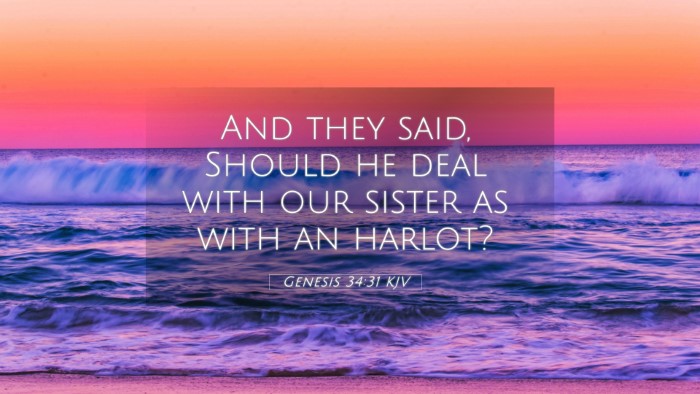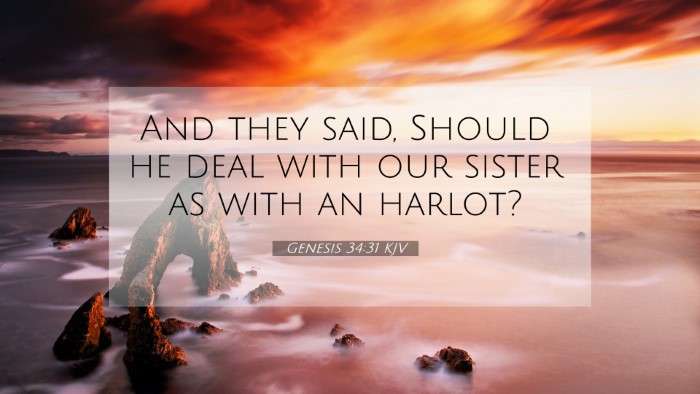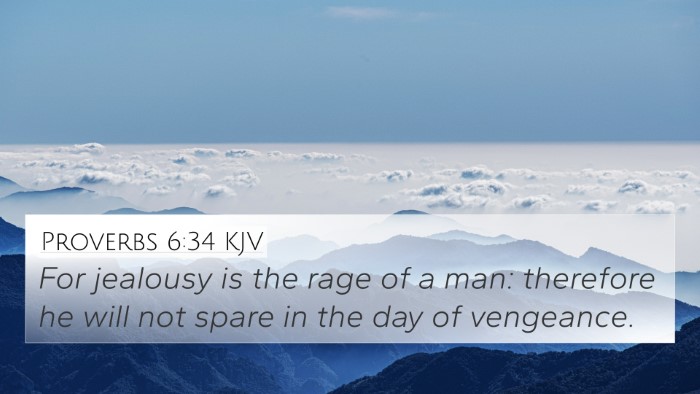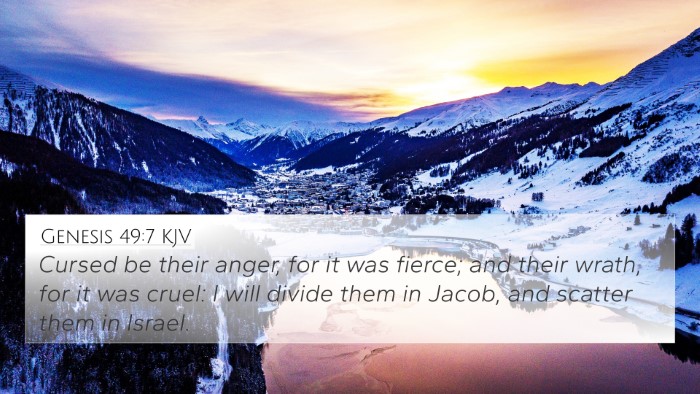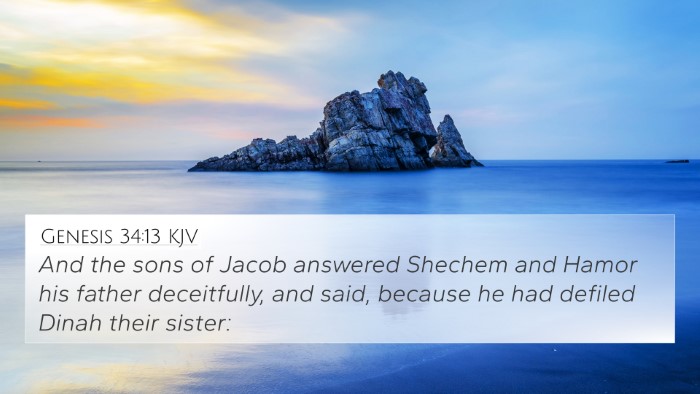Understanding Genesis 34:31
Genesis 34:31 is a pivotal moment in the narrative surrounding the story of Dinah, the daughter of Jacob and Leah. This verse captures the aftermath of a grave event where Dinah is defiled, leading her brothers, Simeon and Levi, to exact revenge on the city of Shechem. The commentary on this verse reveals the brothers' moral outrage, the family dynamics at play, and the significance of justice and retribution in the Biblical context.
Verse Context and Significance
The verses preceding Genesis 34:31 establish a troubling account where Dinah has been taken and shamed, leading to anxiety and anger within her family. This verse particularly emphasizes the seriousness with which the brothers treat the violation of their sister, reflecting the cultural values of the time regarding family honor and retribution.
Commentary Insights
-
Matthew Henry: Henry discusses the harshness of the brothers' response, outlining their motives as rooted in both indignation for their sister’s dishonor and a desire for vengeance against the perpetrator, Shechem. He highlights the moral implications of their actions, questioning whether the bloodshed was justified or led by a passionate fury.
-
Albert Barnes: Barnes emphasizes the narrative's tragic elements, explaining that the brothers’ violence exacerbates the situation rather than provides real justice. He notes the implications of their actions for Jacob's family and how this affects their relationships moving forward.
-
Adam Clarke: Clarke elaborates on the dynamics of tribal honor and retribution, seeing the brothers’ actions in the light of societal expectations of protecting one's kin. He draws connections to the broader Biblical themes of justice and the often violent nature of human conflict, urging readers to reflect on the consequences of vengeance.
Cross-Referencing Biblical Texts
Genesis 34:31 can be understood better through the lens of several other Biblical passages that deal with themes of justice, family, and vengeance. Here are notable cross-references:
- Genesis 34:25: The brothers’ act of revenge begins here, showcasing the violent response to Dinah’s defilement.
- Exodus 20:13: "You shall not murder." This verse raises the moral dilemma of the brothers' actions, juxtaposing cultural norms against divine commandments.
- Leviticus 24:17: This verse addresses the principle of life for a life, illuminating the deeper consequences of such retributive justice in the Biblical narrative.
- Deuteronomy 19:21: Reflects the principle of proportionate justice, contrasting with the overwhelming revenge executed by Simeon and Levi.
- Proverbs 16:32: "Better a patient person than a warrior." A reflection on restraint as opposed to the violent path taken by Dinah's brothers.
- Matthew 5:38-39: Jesus teaches on turning the other cheek, contrasting the Old Testament perspective of justice with New Testament grace.
- Acts 7:9-10: Stephen recalls the story of Joseph, providing insight into Jacob's family dynamics and foreshadowing future conflicts within the lineage.
Thematic Connections
This verse connects to broader themes in Scripture, including the family dynamics of the patriarchs, the concept of honor, and the consequences of vengeance. The complex interplay between justice, culture, and divine law is apparent in the actions of Dinah's brothers and sets a precedent for later discussions on such themes throughout the Bible.
Exploring Inter-Biblical Dialogue
Genesis 34:31 invites a closer look at the inter-Biblical dialogue concerning justice and morality. The harsh measures taken by Simeon and Levi contrast beautifully with teachings found later in the New Testament, encouraging a comparative Bible verse analysis that enriches our understanding of justice in the Biblical narrative.
Final Thoughts
In summary, Genesis 34:31 serves as a lesson on the complexities of justice, family honor, and the varied moral decisions present in human conflict. The perspectives offered by various commentators highlight the need for careful reflection on our interpretation of Scripture, particularly when assessing the actions and motivations of its characters.

